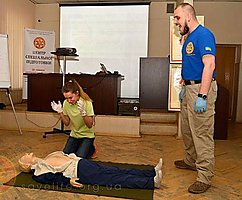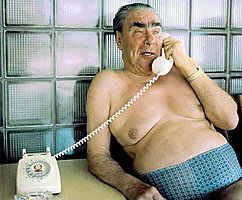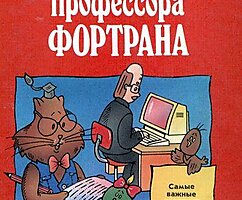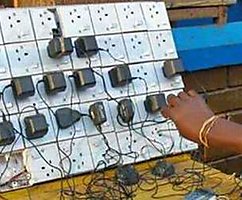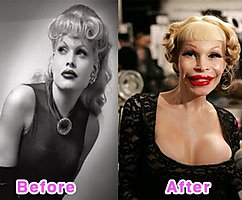Carl Honore - an Ode to slowness (TED)
 Bashny.Net
Bashny.Net
I'd like to start with one observation: If I made something for myself for the last year is the fact that there is some irony in the fact that, by publishing a book about slowness in my life I have to move very quickly, literally, to fly from place to place. The impression is that lately for the most part I wander from city to city, from office to office, from meeting to meeting, each time presenting his book very briefly. Because nowadays everyone wants to know how to calm down and slow down my life and want to learn how to do it quickly! So... I recently appeared on CNN the other day where I was prepared to live longer than I did. And I thought — what's so amazing? We live in such a world we live in "right now" in the world, who has a jammed button "forward".
A world obsessed with speed, to do everything faster, with cramming more and more into less and less time.Every minute during the day is a race against the clock. Carrie Fisher has a phrase I even put it in the "about the speaker" in the booklet, I will say it again: "nowadays, even instant pleasure takes too much time!" And, if you think about how we try to make things better, what do we do? We're trying to speed up, isn't it? So we used to dial a phone number... we now have voice dialing.
We used to read... now we can benefit from speed reading. We used to walk... now we speed walk. And of course, before we went out... we now have "sex". And even in those things which by their very nature slow, we try and speed them up. So I was recently in new York, I walked past a gym. There was a posting for the new group, the evening group. And it was a lesson... you guessed it, speed yoga! See, the perfect solution for professionals who do not have time who want to relax through exercise but can devote 20 minutes to it. All this is, of course, extreme cases, and they're amusing to laugh.
But I want to emphasize one very serious thought in our daily bustle, we often lose sight of how this whole run for life in fact it is hurting us. We are so accustomed with this "cult of speed" that almost do not notice what it cost us in all aspects of our lives. How does this affect health, to food, to our work, our relationships, our environment and society. And sometimes you need some signal from the outside, isn't it?... who will draw our attention to the fact that we run our lives, instead of living it.
We live quickly, instead of live well. And I think that for many people this signal is a disease in any form. Something like burnout, or eventually the body says, "I can't take it anymore," and just failing. Or the relationship goes up in smoke because we did not have enough time, or patience, or peace, to be with a partner, listen to him or her.
And for me, that signal was the moment when I began to read the history son for the night, I found that at the end of the day I'm going to go to his room as a meeting — you know, I'm going to read him "Cat in boots" as quickly as possible. I miss lines or even entire paragraphs, sometimes entire pages.
My baby, of course, knows this tale by heart, and we began to argue with him. That must be very relaxing, the most spiritual moment of the day when dad reads a bedtime story to his son — became a battle of wills, a struggle between his speed and my... uh...... my speed and relaxation. And so it was some time before I caught myself on the fact that I run an article in the newspaper something like "ways to save time for the fast people." And in one of these ways advised to pay attention to a series of books called "a bedtime story In 1 Minute" And I wince saying those words now, but my first reaction was quite different.
My first thought then was: "Wow! What a great idea!
This is exactly what I need to reduce my time with my son before bed." But fortunately, I have recovered, and my next reaction was quite different. I stopped and thought: "has it come to this? Am I really in such a hurry that was going to put to sleep my son at the end of the day, saying he's only a few words?" And I... I put down the paper, and a little later, when I was on the plane — I was sitting there and did something that has never been done for a long time... didn't do anything.
I was just thinking, I thought long and hard. And when I got off the plane, I decided that I wanted to do something about it. I want to investigate this whole Roadrunner culture, and what it was doing to me and everyone else. And I
... I had two questions. First — how did we get so fast? And second — is it possible, or even need to slow down? Now, if you think about how our world has become so accelerated, you won't guess the real reason. You probably think about urbanisation, consumerism, the workplace, technology. But if you cut through all of these reasons, perhaps you will come to the source, to the essence of this question, and it turns out that this is how we think about time. In other cultures, time is cyclical. It is seen as moving in great, unhurried circles. It constantly renews itself." In Western culture time is linear. It's a finite resource, it's always draining away. You either use it, or lose it. Time is money, said Benjamin Franklin.
And I think it gives us a psychological effect: we have the equation — time is short what to do? Well, we're accelerating, right? We try and do more and more with less and less time. We turn every moment of every day into a race to the finish line. To the finish line, which we never reach, but we assume that it is. And, I think, the question is: is it possible to get rid of this setup? And fortunately, the answer is Yes!
When I began to understand, I found out that there is a global trend against this culture that tells us that faster is always better, and that the busiest is the best.
Around the world people do something unimaginable: they reduce the pace, and find that contrary to the stereotypical view that "slow — lose" just the opposite is true! So by reducing the tempo at the right moments, people find that they do better. They eat better; they make love better; they exercise better; they work better; they live better. And in this set of moments, places, slowdowns and lies that many people now refer to as the International Movement for the Slowness.
Now, if you'll allow me a bit of hypocrisy, I will present a short overview of what is going on inside the Slow Movement. As for the food, many of you can learn about the Slow Food movement. It began in Italy and spread throughout the world Now he has 100 thousand followers in 50 countries. And it's driven by a very simple principle: we get more pleasure from eating, and much healthier to eat when we cultivate, cook and consume at the correct speed. I also think that the rapid growth of the movement for natural agricultural products and the revival of the farmer's market is another examples of what people are desperately trying to stop to grow, cook and eat in the industrial mode. They want to return to a slower rhythm.
And from the Slow Food movement has grown something called the Slow Cities movement, which also began in Italy and spread through Europe and beyond. And in this movement, cities began to reconsider how they plan development of land so as to give people the opportunity to slow down and smell the roses and spend time with each other. So they limit the flow of cars, or put in a Park bench, or host another green zone.
And sometimes, these changes add up to something big I think when a Slow City becomes officially a slow city, it is something like a philosophical statement — It's saying to the world and the people in it that we believe that in the 21st century, slowness has its place in life. In medicine, I think a lot of people deeply disappointed by the idea of quick-fix mentality which now prevails.
And millions around the world trying different kinds of alternative medicine, which is practiced at a slower, more gentle and deep treatment. Obviously, some of these therapies stand up to scrutiny, and I personally doubt that the coffee enema will ever get... uh... universal recognition.
But some treatments, such as acupuncture and massage, and even just relaxing, definitely bring some benefit. And the best medical schools around the world are beginning to study these things to understand how they work, and what we might learn from them.
Sex. Around just nemeryannom sex "bystryachku", right? Once I was close to the end - no pun intended... well, I was close to the end of my road in Oxford, drove. and I saw kiosk magazine, men's magazine.
On the cover was "How to bring a partner to orgasm in 30 seconds." So, as you can see, even sex in our time — a stopwatch. To be honest, I also love a quickie, and I believe that so much can give slow sex... you Know, if you get into it deeper, like, psychological, emotional, spiritual currents, and you will get much more pleasure from orgasm. More buzz for the same money, so to speak.
Pointer Sisters sang once about this... well... when he sang that better than anyone — lover with a slow hand. And we all laughed at sting a few years ago, when he was engaged in Tantra. Now scroll for a couple of years since then, couples of all ages gather for such practices, to workshops, sometimes even just themselves, in the bedroom, looking for ways to calm down, relax and have more fun in sex. And of course, in Italy where -- I mean, Italians always seem to know how to have fun — and so, they launched an official Slow Sex Movement.
At work in the world except maybe North America, the number of working hours decreases. And Europe is an example of how people find their quality of life improves when they work less, and also that worker productivity goes up. Definitely there are problems with the 35-hour working week in France — too much, too tightly. But other countries in Europe, especially the Scandinavian, demonstrate that it is possible to maintain a tremendous economy without being a workaholic. Norway, Sweden, Denmark and Finland now rank among the six most competitive Nations on earth and they work so little time that the average American weep with envy. But if you go down from the country level to the level of individual companies, more and more companies understand that we should allow their employees or to work less, or simply "shut down" — to go somewhere for lunch, or sit in a quiet room, turn off their smartphones — Hey, you back there — mobile phones, and during the working day and on the weekends, so they have time to reload and that their brains would be able again to turn on creative mode.
And, by the way, not only adults nowadays are processed. The children, too. Me — 37, my childhood ended in the mid-80s. And I look at my children now and I am simply amazed how they have to do more lessons, more learning, more prepared much more than we could even imagine a generation ago. And the most heartbreaking letters I receive through my website from Teens who are teetering on the brink of burning out, and asked me to write to their parents to help them to calm down, helped to get out of this race. But fortunately, there are shifts from parents, Some cities in the States make a decision to prohibit elective classes on certain days each month so that people could relax and spend time with family and relax.
Homework is history. They forbid around the developed world, in the schools, which for decades relied on them, and now they're discovering that less can be more". Recently in Scotland a private expensive school refused homework for children up to 13 years, and the "elite" parents got scared, and said: "What are you doing? Our children will grow up losers!". And the Director said, "No, thank you! Your children need to relax at the end of the day." And this month, the exams showed that, in mathematics, physics assessment increased on average by 20% over the last year. I think this shows us that the elite universities where people send their kids to where they "made men", these institutions are beginning to notice that the level of the students coming to them is falling every year. Children have great grades, they passed a bunch of extra courses, you will be touched by their achievements. But they lack spark, they lack the ability to think creatively and outside the box — they can't dream. And these elite universities, Oxford, Cambridge... begin to convey to parents and students that they would have a little bit. And in Harvard, for example, sent a letter to the freshmen is that they will get more from life, from studying at Harvard, if they are to engage calmer. Let them be to do less, but to give things more time — as much as necessary to get fun to make high quality. And sometimes even doing nothing. And it was called -- very revealing, by the way — "slow down!" — with an exclamation point at the end.
So, wherever you look — the meaning is the same. That less is very often more, that slower is very often better. But it should be noted, of course, that calm is not easy, right? I mean, I was fined for speeding while I was working on my book about the benefits of slowness. And it's true! But that's not all... In fact, I then went to the reception held by Slow Food. So, I got a fine in Italy. If any of you have driven in Italy on the highway you probably imagine how fast I was going.
(laughter)
But why is it so hard to slow down? I think there are various reasons. One is that speed is fun. The speed is cool. It's the adrenaline. Hard to give it up. I think there's a philosophical aspect — that speed becomes a way of walling ourselves off from the bigger, deeper questions. We fill our head with things, distracted, loaded themselves so that we don't have to ask yourself: is it good for me? if I'm happy? do I raise children? Whether politicians make the decisions on my behalf? Another reason may be that the most powerful reason -- why we find it hard to calm down — it's a stereotype in our culture We are all as one against the slowness. "Slow" is a dirty word in our culture. Is synonymous with laziness, sloppiness, a characteristic of a loser. For example, "he's a bit slow". In fact, it means being stupid".
I believe that the purpose of the Slow Movement, its main goal really, is to remove the taboo, and to declare to the world: Yes, sometimes slow is bad that there is such a thing "slow and bad". You know, I got stuck on the M25 is a ring road around London. Stuck recently, three and a half hours. And I can tell you is — "slow and bad". But here's a new idea, the sort of revolutionary idea of the Slow Movement. It is that there is also "slowly and well". And this, for example, when you find time to eat together with your family without the TV. Or find time to think about a question from all sides on working to make the best decision. business. Or even just find time to stop and enjoy life.
One of the things that I was excited about all the hype around my book since, as it came out, is the reaction to it. I knew that when my book on slowness will come, it will appeal to people of new generation, but it also accepted, with great pleasure, and in the corporate world — for example, business publications, and also large companies and organizations on leadership development. Probably because the people at the top, such as you are beginning to understand that too much speed in the system, too much bustle, and it's time to find or return to forgotten the ability to shift gears. Another encouraging sign, I think, is the fact that not only in developed countries picked up the idea. In developing countries, those on the edge of his advancing to the global level — China, Brazil, Thailand, Poland and others — these countries also accept the idea of the Slow Movement, a lot of people are discussing in the press and on TV, and just everywhere. I think they look at the West and say: "We like some aspects of your life, but we're not so sure about that."
So, back to the question, is it possible? That's really the main question before us today. Is it possible pritormozite? And I'm happy to inform you that the answer is a resounding YES. And I present myself as the first evidence of this. an example of the changed and recovered bistropole. I still love speed. You know, living in London and working as a journalist, I love the fast pace of life, and the adrenaline flow when you live in a fast rhythm. I play squash and hockey, two very fast sports, and I will not give them up. But I also, for the last year or so, got in touch with my inner tortoise.
(Laughter)
And by that I mean that I no longer overload myself gratuitously. Now, normally I don't bistropole. I don't hear the constant ticking clock in my head, at least not as often as before. Right now I hear it, because my time really ends. Finally, I want to say that I feel much happier, healthier, and more productive than ever before. I feel like I'm living my life and not prognoses on it like a rocket. And probably the most important criterion for success in this for me is that my relationships are deeper, richer, stronger.
And for me, a litmus test for whether all this worked or not has always been and will be reading his son on the night that this all started. And this is solid good news. I, as you know, at the end of the day, I go into my son's room. I switch off my computer, so I can't hear the email, I just calm down, go in one rhythm with him and we read. Children have their own rhythm and their internal clock, they don't spend with you in meetings where you would give them 10 minutes so they would be in front of you opened. They want you to move at their rhythm. Those 10 minutes into a story, you know, the son suddenly says: "you Know, today something happened on the street, I was upset". And we'll go off and talk about it. And now I feel that this time the evening was some sort of item on my to-do list, something I avoided because it was so slow, and I wanted to slip through it quickly. And now it has become my reward at the end of the day, something I really appreciate. And now, just like in the movie "happy ending" in my statement today, and now will tell you.
A couple of months ago, I was going to go on another tour with his book, and have already Packed my things. I stood by the front door and waited for a taxi, and my son came to me and...... he made me a card! Brought it to me. He'd gone and stapled two cards, very like these, together, and put a sticker of his favorite character, Tintin, on the front. And he said to me, or he handed it to me and I read: "to Daddy, love Benjamin." And I thought, "Oh, how charming! Is it a good luck on my trip?" And he said, "No, dad — this is a card for being the best story reader in the world!" And I thought, "Yeah, you know, this slowing down thing really does work."
Thank you all very much!
Source: mnmlist.ru/
Tags
See also
Today is the birthday of the great popularizer of science Carl Sagan
Read your child a story, or the Whole truth about employment
Professor Carl dzherassi — People will stop having sex for procreation
Karl Lagerfeld
Carla Bruni
Deputy machines violated the parking rules and caused difficulty in the movement of Karl Marx.
When invented to celebrate your birthday?
"Space" music from audio materials NASA
Castles of Loire. France.
Four laws of stupidity according to Carlo Cipolla
